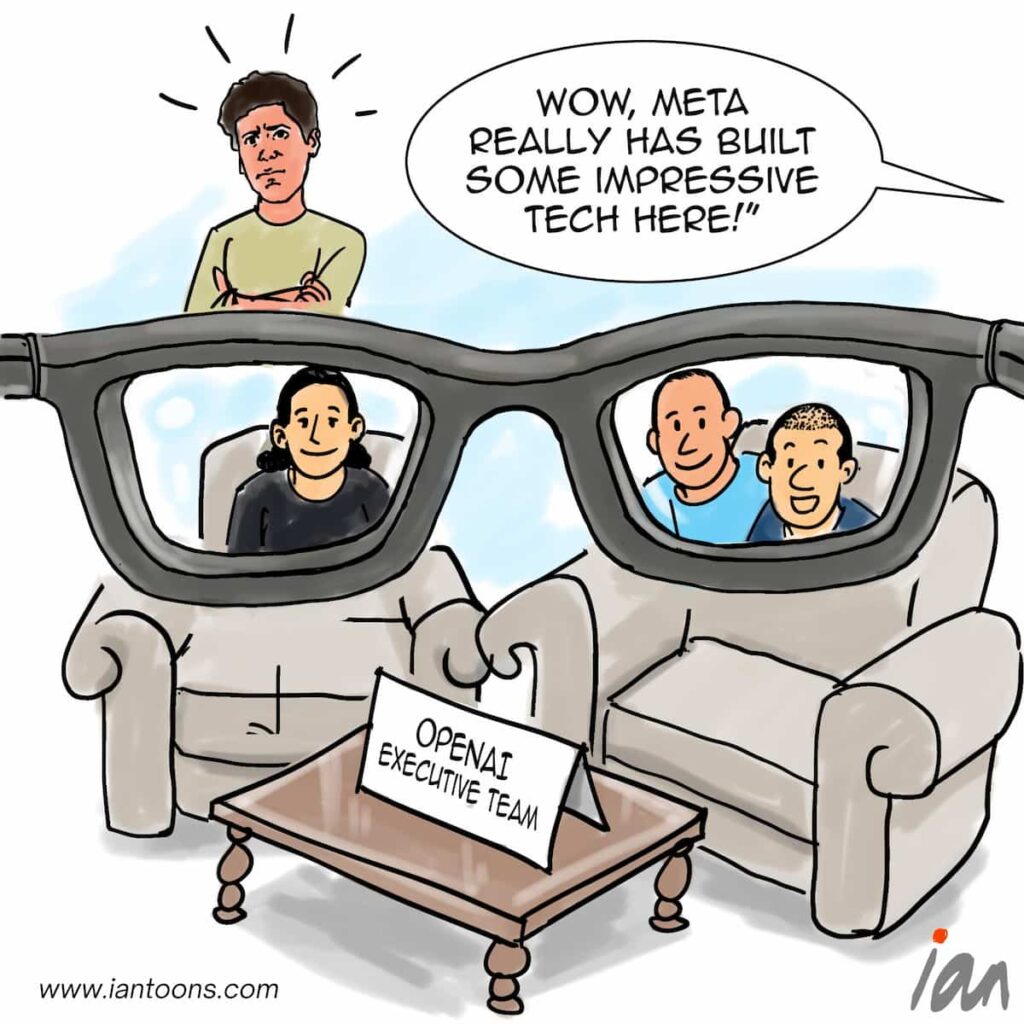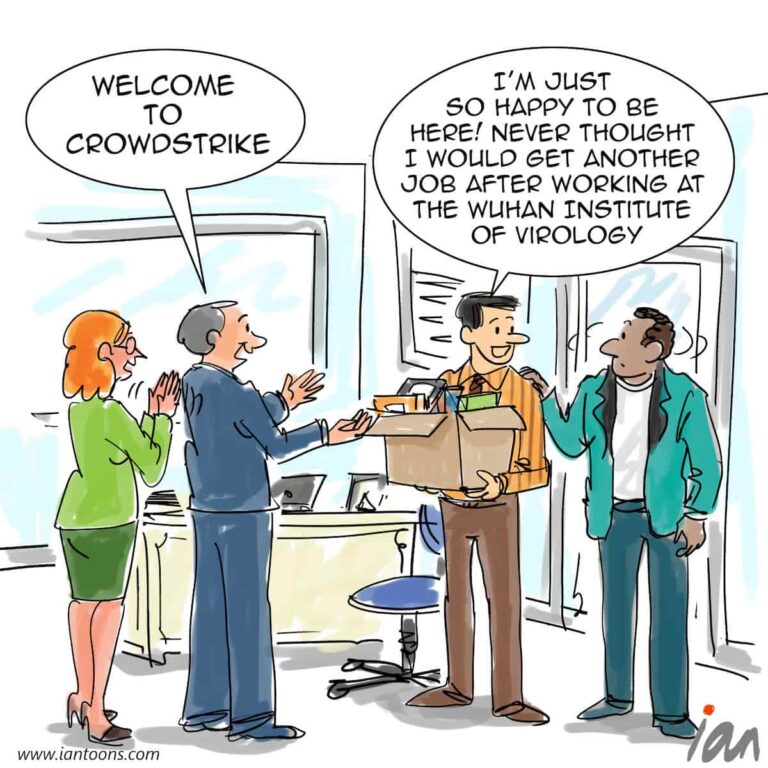Augmented Reality

“Augmented Reality” – a cartoon that illustrates we might finally be delivering on the hype of Augmented Reality (AR) with the arrival of Meta’s Orion glasses.
AR is probably one of the most over-hyped categories in consumer tech with a rich history of failures, from Google Glass to the billions burnt by Magic Leap.
Gartner was predicting that by 2020, 100M consumers will shop in AR online and in-store, which seems laughable today.
However, with the launch of Meta’s Orion glasses, we might be getting closer due to the significant improvement in form factor.
The glasses themselves look something your achingly cool art teacher would wear – they are black and thick framed and connect to a gesture control wristband that lets you click different apps like chess that appear as digital graphics overlaid onto the real world.
“What was really striking to me about these was that they were incredibly lightweight,” CNBC senior media and tech correspondent Julia Boorstin remarked.
While Scott Stein of CNET, said, “The glasses definitely do not look like everyday things, but they at least approach something you might see someone wearing around.”
Other technology correspondents that saw the Meta demo noted that “its transparent lenses allow users to maintain natural eye contact and interact seamlessly with those around them—something that traditional AR and mixed reality (MR) headsets, including Apple’s Vision Pro, struggle to achieve.”
While we are seeing improvements in form factor, price also seems to be a major challenge, with the current production cost for each glasses at $10K. The question is how much is Meta willing to subsidize the chance for it to create the new generation interface device for AI and other next generation consumer experiences.
It is worth remembering Google signed revenue share agreements with mobile operators at the launch of the smartphone industry and in 2022 alone it paid Apple $20BN to be the default search engine in the Safari browser.
29
1
1
Sources:
Emma Hinchliffe (Nov 05, 2019) – The VR Experience That Could Change Corporate America– Fortune






